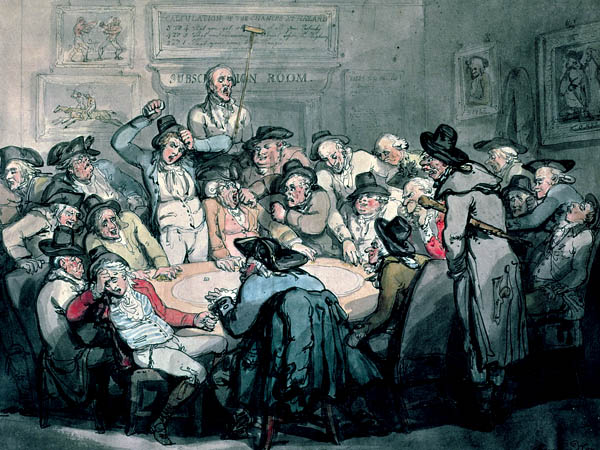HISTORY OF GAMBLING. PART 2
From 11th to 18th century
 The next period of the history of gambling in the UK includes eight century. John Aston in his book The History of Gambling In England wrote: “In early English times we get occasional glimpses of gambling with dice.” According to his narration in 1190 only those who had the rank of a knight and above had a right to play games for money. But even these privileged people could play until they lose 20 shillings a day, not more. It was the beginning of the long procedure, lasting hundreds of years, when the rich tried to abridge the gambling practice among the masses.
The next period of the history of gambling in the UK includes eight century. John Aston in his book The History of Gambling In England wrote: “In early English times we get occasional glimpses of gambling with dice.” According to his narration in 1190 only those who had the rank of a knight and above had a right to play games for money. But even these privileged people could play until they lose 20 shillings a day, not more. It was the beginning of the long procedure, lasting hundreds of years, when the rich tried to abridge the gambling practice among the masses.
In this period people enjoyed such distractions to bet on as bull baiting, pigeon racing and cockfighting. These betting events were very popular. Checkers and chess were also played for money but it’s disputable whether they were so popular.
In the 14th century cards almost replaced dice as game of chance. Cards came to Europe from Asia and within 100 years were played only across the continent. The decks were changed by Europeans, who creates the four suits that are known today. Ashton wrote that “James IV of Scotland surprised his future bride, Margaret, when he paid her his first visit, playing cards”.
The attempts of the nobility to prohibit men of common people to gamble continued. Henry VIII banned the lower classes from playing games for money. Among these games cards, as well as tennis, dice and bowls were named. This law forced many people to turn to drink and crime.
In the Elizabethan era the first British lottery appeared, and just in this period a new card game Primero, which had some similarity with poker that we can see now in every gambling casino online, gained popularity. The British lottery offered to wide public over 400,000 tickets, china and cash were among the prizes. King James established the first London lottery in 1612.